‘Replace fossil fuels’: Climate activists target PECO’s next power purchase plan
Every four years, PECO makes a plan to buy electricity for its customers. Climate activists want the utility to do something different the next time around.

POWER Interfaith held a rally outside City Hall to announce the People’s Energy Plan on June 28, 2023. (Kimberly Paynter/WHYY)
This story is part of the WHYY News Climate Desk, bringing you news and solutions for our changing region.
From the Poconos to the Jersey Shore to the mouth of the Delaware Bay, what do you want to know about climate change? What would you like us to cover? Get in touch.
In the coming months, the electric utility serving the Philadelphia area will propose a plan to buy power for the next four years.
Activists are pushing for more renewable energy at affordable rates.
“We’re responsible for the planet, … for our neighbors near and far, for our children’s children,” said Bishop Dwayne Royster, executive director of POWER Interfaith. “Humanity … is facing a huge challenge of a climate emergency. … PECO energy can be a part of solving that problem.”

The statewide faith-based advocacy group organizing for racial and economic justice rallied at City Hall in Philadelphia Wednesday to promote its “People’s Energy Plan,” a set of principles urging PECO to sign long-term contracts for renewable energy and to “democratize” the energy procurement process by meeting with activists and stakeholders.
The Biden Administration has set a goal to eliminate carbon pollution from electricity generation by 2035 in order to combat climate change. In Pennsylvania, over a quarter of the state’s planet-warming greenhouse gas emissions come from producing electricity.
“We’re already seeing and feeling climate change right here in Philadelphia,” Royster said, as smoke from Canadian wildfires spurred an air quality warning in the city. “Summers are getting hotter earlier, which means more days when schools have to close. … More days when our elders and other neighbors who are vulnerable are at risk, especially in the many neighborhoods here in Philadelphia that lack trees.”
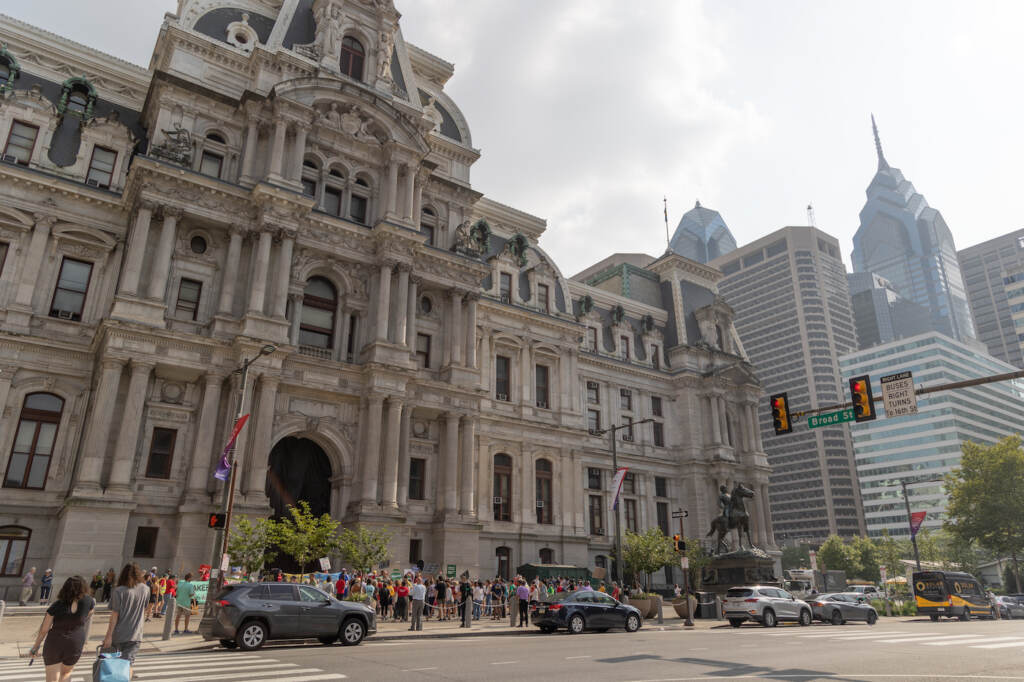
Every four years, PECO proposes a plan to state regulators detailing energy purchases for its customers who do not choose an alternate provider. This “default service program” goes through public hearings, sees input and challenges from stakeholders, and eventually, must be approved by the Pennsylvania Public Utility Commission.
The company’s current plan expires in May 2025. PECO plans to propose a new one early next year, which would stretch until 2029 — just six years before the Biden Administration’s goal to eliminate carbon emissions from the grid.
The electricity that PECO’s 1.6 million customers in the Philly area receive comes from the regional grid, known as PJM, where more than 60% of the power is generated from natural gas and coal. Close to a third of the energy comes from nuclear, which does not directly produce carbon emissions. Less than 7% comes from renewables, including solar, wind, and hydropower.
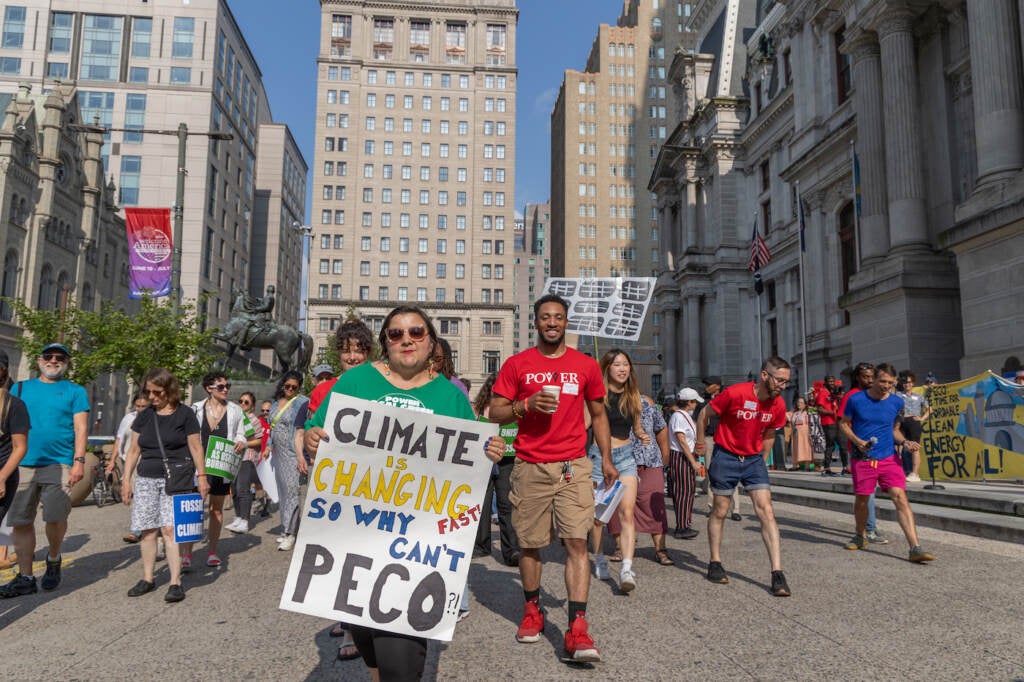
Company spokesperson Brian Ahrens said PECO’s power purchase contracts do not specify the source of the energy.
“We’re buying at the lowest cost for the benefit of our customers,” Ahrens said. “We don’t specify whether that’s nuclear or hydro or anything else.”
PECO’s energy procurement standards are set by state regulators. These require the company to buy “a prudent mix” of resources to ensure adequate and reliable service at the lowest cost to customers. In other words, the utility has to make the cheapest purchase possible, while also ensuring there is enough electricity available for its customers. This includes spot market, short-term and long-term purchases, Ahrens said.
State regulations do not specifically prohibit PECO from specifying source when buying power, Ahrens said.
“However, doing so would add a constraint that could result in that supply not meeting the legal standard of being the least cost for customers,” he wrote in an emailed response to questions.
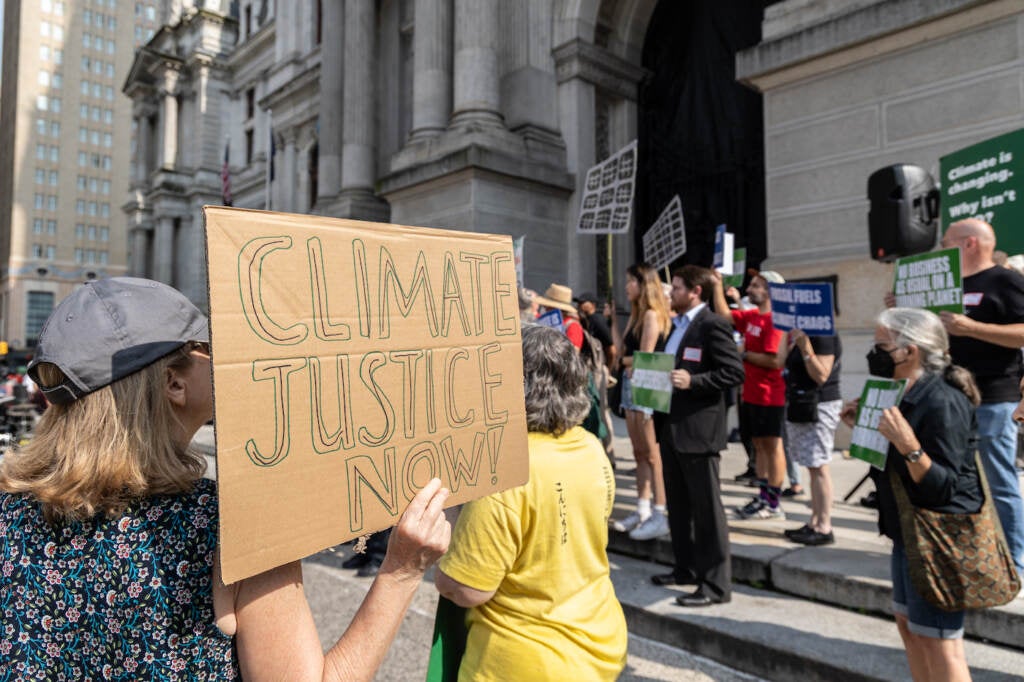
State regulators only require that one half of one percent of the electricity utilities like PECO provide to customers come from solar. Another 7.5% must come from sources such as wind, low-impact hydropower, geothermal, or methane from landfills.
PECO works to buy 2,400 rooftops-worth of solar credits annually, Ahrens said. The company also supports legislation to raise Pennsylvania’s solar requirement from .5% to 5% of all electricity sold in the state by 2030.
But climate activists say PECO needs to lead on the transition to renewable energy, rather than wait for regulation.
“Stop passing the buck to the government to enforce action,” POWER’s Royster said. “Stop ignoring the cost to our health and communities. The longer PECO delays taking action on climate change, the more it will cost both in dollars and in lives.”
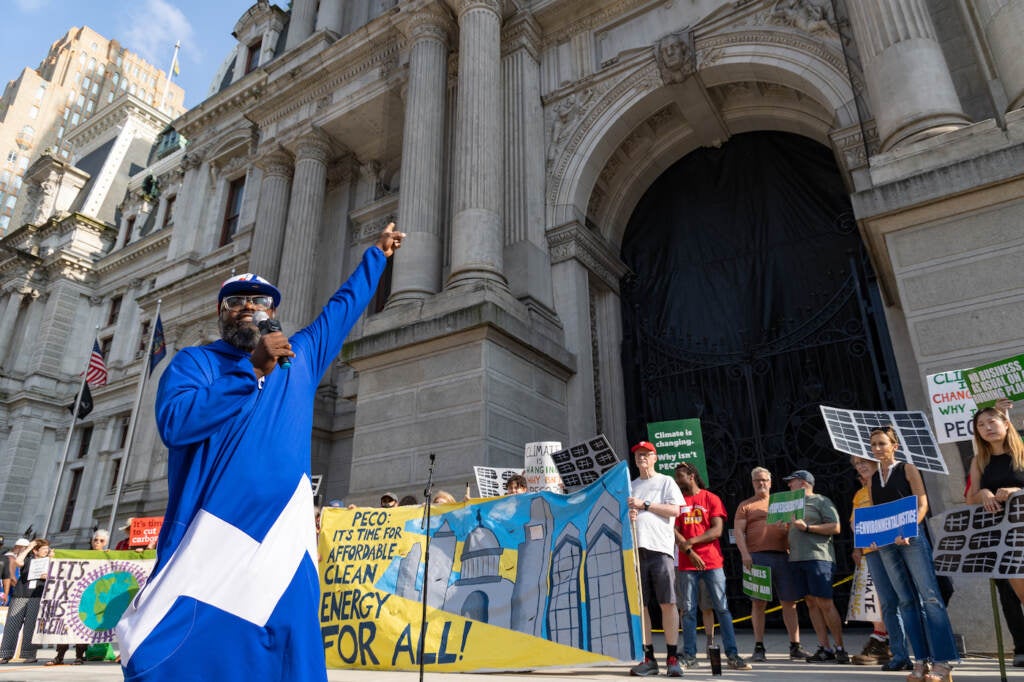
In 2020, the last time PECO proposed a default service program, environmental groups argued that PECO failed to properly consider and include long-term renewable energy supply contracts. But an administrative law judge decided PECO “appropriately considered” the use of long-term contracts and “refuted the overly broad statements” made by environmental stakeholders about the benefits of long-term contracts for sourcing renewables, according to a PUC order in the case. The judge said the environmental groups did not offer an alternative procurement plan.
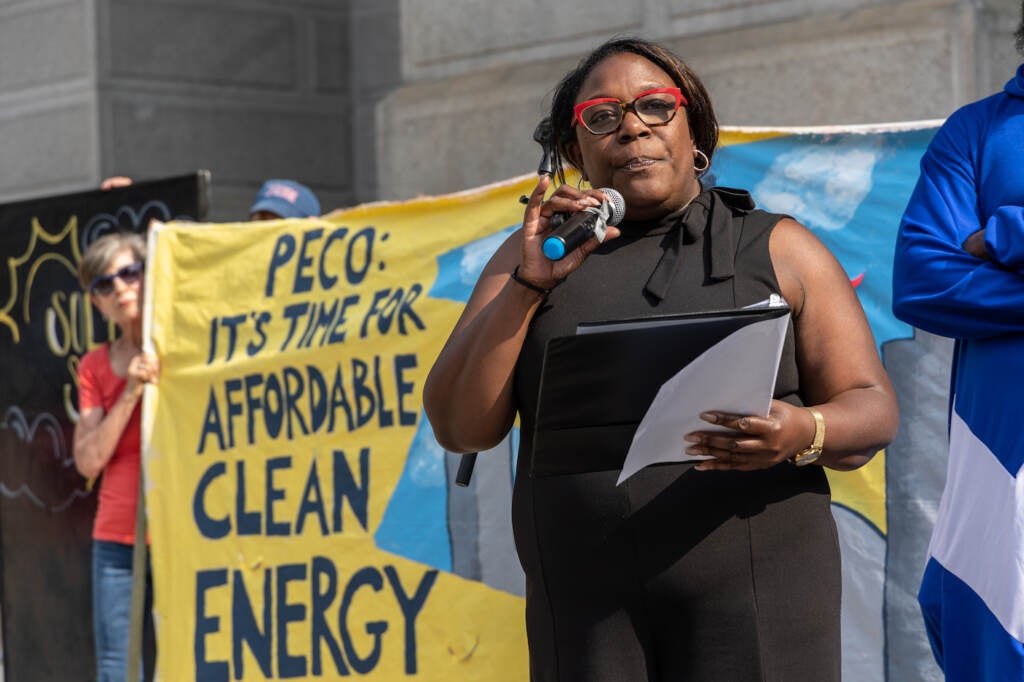
This time around, POWER plans to work with legal and technical experts as well as grassroots leaders to engage with PECO on its planning process and come up with a viable alternative.
“We’re coming back into this dialogue, we hope, much more informed and stronger,” said Rabbi Julie Greenberg, director of climate justice and jobs at POWER.

Subscribe to PlanPhilly
WHYY is your source for fact-based, in-depth journalism and information. As a nonprofit organization, we rely on financial support from readers like you. Please give today.








